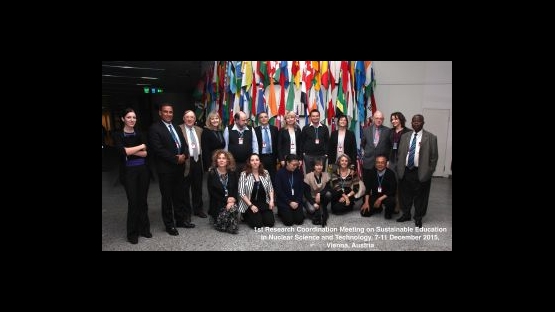Education in nuclear science and technology for both power and non-power applications is relevant for a vast majority of countries. However, the environment for nuclear education is changing. Teaching methods and techniques have evolved and trends in enrolment into science and engineering studies vary from country to country. Identifying, understanding and sharing the current tendencies and changing context of nuclear education is important, including best practices, methods and tools, and workforce supply and demand conditions. That is why more than 40 higher education institutions with programmes on nuclear science and technologies expressed their interest in a joint research on social and technological trends related to nuclear education.
The overall objective of the new Coordinated Research Project (CRP) on Sustainable Education in Nuclear Science and Technology is to provide Member State organizations involved in nuclear education and training with relevant and validated information, which will support them in advancing nuclear education. The knowledge obtained from the CRP should contribute to improving sustainability and quality of the teaching and learning process, facilitate informed decisions, and foster effectiveness and efficiency through increased cooperation and adoption of innovative practices. This CRP will focus on several nuclear education research themes including:
- Impact of adopting modern information and computer technologies in nuclear education;
- Cooperation and collaboration approaches and formats between industry, university and government, and among countries and regions (e.g. networking and resource sharing mechanisms);
- Outreach best practices applied by academia to address schools and society;
- Demographics in nuclear education, including supply and demand, and gender issues;
- Benchmarking approaches for nuclear education;
- "Nuclearization" of non-nuclear engineers and scientists; and
- Mapping nuclear competences in nuclear education.
From 7 to 11 December 2015, the 13 successful research contract and agreement applicants met in Vienna and presented their research proposals. For the first 3 days, the individual research project objectives were presented and discussed. In the course of multiple rounds of discussion the common research threads became clearer. Groups were formed around each research theme. Finally, it was agreed that the IAEA's CONNECT platform will be deployed for common research and exchange of findings and data. Desired research outcomes for each research theme were clearly identified and, at the completion of the research project, research outputs will be shared with the broad community of nuclear educators.
By Tatiana Karseka and Silvia Gaetano, Department of Nuclear Energy


